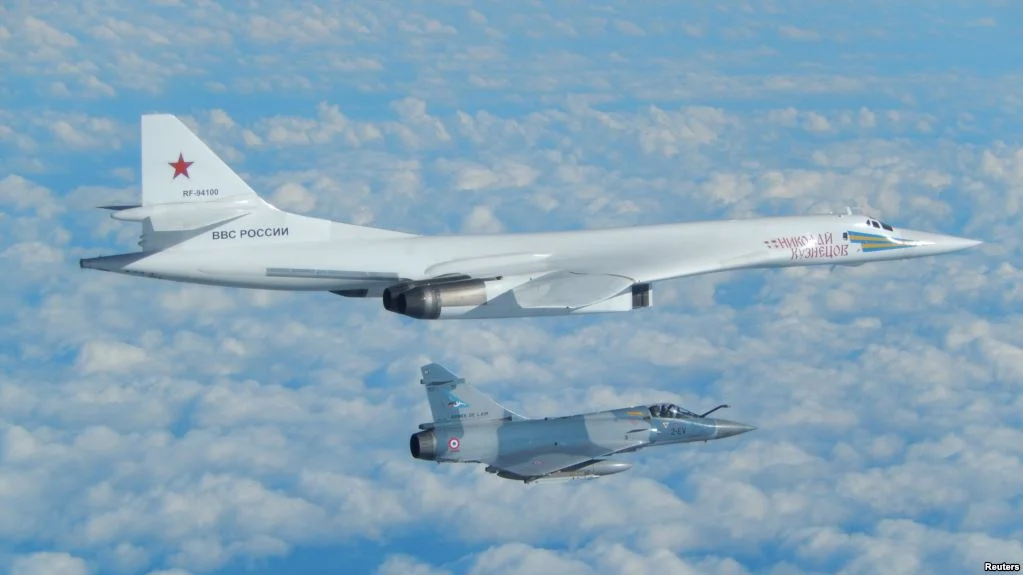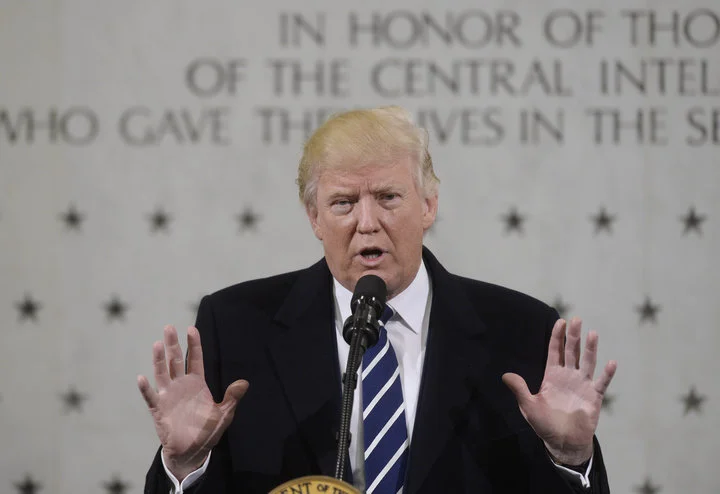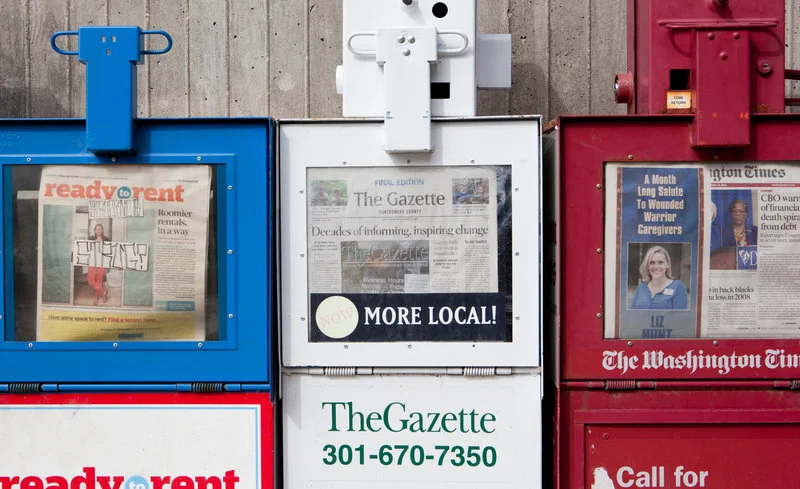A Clear and Present Danger to National Security By James Bruno
On January 26, two Russian TU-160 Blackjack strategic bombers buzzed North America. American and Canadian fighter jets quickly scrambled to escort them away, in what was just the latest game of aerial chicken between Moscow and the West. Nuclear-capable Russian bombers also skirted the Alaska coast in both September and May of last year, each time intercepted and chased out by U.S. fighters. Putin’s message is clear: Russia is a great nation and the United States is vulnerable.
Such close encounters have occurred sporadically since the Cold War. So far, these close calls, sometimes measured in yards and feet, have not resulted in calamity. But they easily could. If so, how would things play out? Is the Trump administration capable of handling a serious international crisis soberly and methodically?
Photo by RFE
A head-on collision between U.S. and Russian or Chinese warfighting assets could easily spiral into a Guns of August-style avalanche toward armed conflict. Just as feckless European powers a century ago let the assassination of a Balkan archduke lead to world war, an incompetent U.S. president, dismissive of his national security apparatus and operating in a policy vacuum, puts our security at serious risk. As President John F. Kennedy once said, “Domestic policy can only defeat us. Foreign policy can kill us.”
In December, President Donald Trump reversed U.S. policy on Syria and Afghanistan, withdrawing all U.S. military personnel from the former and half from the latter. There were no policy discussions with the Pentagon, State Department, or even within the National Security Council. The intelligence agencies were not asked for their input. Nor were Congressional or international allies consulted, much less the Afghan government or Syrian opposition forces. It was off-the-cuff policymaking at the touch of Trump’s Twitter finger.
Photo by Getty
Since he came into office, this president has been at odds with his own government, likening the intelligence community to “Nazis,” attacking the FBI and justice system, demeaning cabinet secretaries and other senior officials to the point of their quitting or being fired. James Mattis, Trump’s former defense chief, was the latest to leave, following the decisions on Syria and Afghanistan.
Trump recently called his intel chiefs “extremely passive and naïve” and suggested they “go back to school” in response to the latest Worldwide Threat Assessment report, the intelligence community’s comprehensive overview of salient threats to our national security, which happens to contradict the president’s alternative facts, notably regarding Iran, ISIS, North Korea, and Russia. In an astonishing and unprecedented move, the president’s intelligence briefers warned, anonymously, that his rejection of intelligence is endangering the country. “When it comes to the effective stewardship of our nation’s security—especially during crises—the most successful administrations had three things in common: people, process and policy,” notes President Obama’s former Deputy National Security Advisor Anthony Blinken. In the Trump administration all three are severely lacking.
Jim Mattis (Jacquelyn Martin/AP )
In terms of senior policy personnel, the Trump administration resembles a ghost ship more than a fully functioning executive branch: nearly 40 percent of top government positions remain unfilled, including a third of the nearly 200 senior policy jobs in the State Department; thirty-one ambassadorships are vacant; political appointees, often unqualified campaign contributors and cronies, comprise fully half of the rest; and a quarter of cabinet-level departments are headed by “acting” secretaries, according to the Partnership for Public Service. What’s more, there has been a record two-thirds turnover in senior White House staff, including three national security advisors since Trump came into office.
As for process, essentially there is none. “Principals” and “deputies” meetings of cabinet and second-tier officials of the foreign affairs agencies to coordinate policy are rare. When I was a State Department official working on Afghanistan and European affairs in the 1980s, such meetings were frequent. The process, though bureaucratic, contributed greatly to the policy successes of Ronald Reagan and George H. W. Bush. Without the collective input of experts and policymakers in multiple government agencies, bad decisions might have been made with dire consequences. Decision-making in the current administration, however, is overly centralized in the hands of a highly ideological and hawkish National Security Advisor John Bolton—and a whim-driven president.
Equally disconcerting, Trump’s America First policy agenda has damaged the post-World War II order that has undergirded political stability, democratic societies, and global prosperity for more than half a century. Through instigating a rift with our NATO allies, threatening to pull out of the World Trade Organization, coddling despots, downplaying human rights, and abandoning the Paris climate change accord and Iran nuclear deal, the president has diminished America’s capacity to lead on the world stage.
Photo by Mikhail Klimentyev—AFP/Getty
Most disturbing, especially to this ex-diplomat and many of my active duty and former colleagues, is the growing evidence of potential collusion between Trump and Moscow. President Trump’s obsequiousness to Vladimir Putin has been amply documented. His exclusion of U.S. officials—even American interpreters—from his meetings with the Russian leader sounds obvious alarm bells among counterintelligence professionals. Is the U.S. commander in chief an asset of Russia? As outlandish as it sounds, the possibility can by no means be ruled out. Once Special Counsel Mueller’s investigation is completed, we may finally know. But there is one refrain that circulates widely among national security professionals: none of us would have received security clearances had we even a fraction of the shady foreign contacts or financial shenanigans that have come to light about the president.
Imagine a Russian SU-27 fighter clips the wing of a U.S. Navy reconnaissance aircraft, causing it to tailspin into the Black Sea, sending all 24 crew members to their deaths. Washington and Moscow immediately face a Cold War-style confrontation. What happens?
The fully professional U.S. military chain of command functions as it should. But it requires orders from the commander in chief. Yet, as of this writing, there is no secretary of defense. There is no adequately functioning interagency policy process. The president ignores the intelligence reports and policy papers put before him. Our gutted and hack-dominated diplomatic machinery stalls in place. Maybe Trump heeds funky signals from Putin not to respond. Maybe he responds with fire and fury.
We don’t know what would happen. All we know is that the security apparatus that has kept America safe for decades is being eroded. If the United States really had to deal with an emergency, the guardrails that once existed would be impossible to resurrect, and the policymaking machinery gravely deficient. In fact, Trump is making it all the more likely that any crisis could quickly turn into a catastrophe.
James Bruno (@JamesLBruno) served as a diplomat with the U.S. State Department for 23 years and is currently a member of the Diplomatic Readiness Reserve. An author and journalist, Bruno has been featured on CNN, NBC’s Today Show, Fox News, Sirius XM Radio, The Washington Post, Christian Science Monitor, Huffington Post, and other national and international media.









